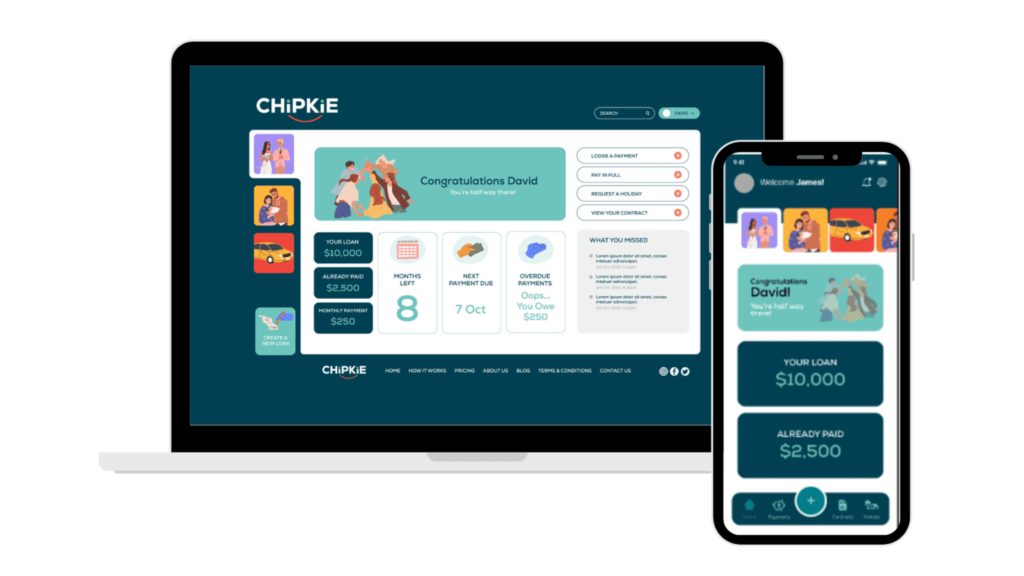In 2025, cash is becoming obsolete, and the Australian economy is rapidly shifting to digital transactions. The global volume of cashless payments is set to nearly double by 2030, with digital wallets becoming the preferred payment method for consumers across e-commerce and point-of-sale transactions. This rise of digital finance is not just changing how we shop; it’s revolutionizing how friends manage Digital Wallets and Shared Expenses, from rent and utilities to dinners out.
As the cost of living continues to pressure household budgets, young Australians are increasingly vigilant about splitting costs. Casual IOUs and the awkwardness of chasing a friend for that $\$20$ are being replaced by instant, transparent, and automated tools. However, while instant payment apps simplify small splits, they introduce complexity when friends need to formalise a significant loan, like a bond payment or a large travel advance. Understanding the boundaries and limitations of Digital Wallets and Shared Expenses is key to maintaining both your budget and your friendships.
The Three Ways Digital Wallets Simplify Everyday Splitting
Digital wallets are more than just a place to store your credit card information; they are integrated financial hubs that provide essential tools for modern shared living.
1. Instant P2P Payments and Real-Time Settlement
The biggest pain point in shared expenses used to be the time lag between payment and reimbursement. Thanks to advancements like Australia’s New Payments Platform (NPP), which enables instant transfers like PayID, this problem is virtually eliminated.
- Problem Solved: No more waiting for bank clearance or pretending you forgot to pay. Money moves instantly from one bank account to another, regardless of which institution you use.
- The Trend: Real-time payments (RTPs) are becoming the standard, creating an expectation that shared balances should always be zeroed out immediately.
2. Expense Tracking and Reconciliation Apps
The core of managing Digital Wallets and Shared Expenses is avoiding the “who owes whom” confusion. Dedicated apps integrate payment and tracking, moving beyond simple transfers.
- Categorisation and Visualization: These apps allow users to input a group expense (e.g., “Monthly Internet Bill”) and instantly split it based on a pre-determined ratio (50/50, by percentage of income, or custom).
- One-Tap Repayment: Once the split is reconciled, the app can be linked directly to a bank account or digital wallet to initiate the payment with a single tap, removing the need for manual calculations.
3. Enhanced Security and Fraud Protection
The security features embedded in digital wallets and payment platforms are often superior to carrying physical cards.
- Tokenisation: Digital wallets do not disclose your actual card number to the merchant. Instead, they use a temporary, encrypted token. If a merchant’s system is breached, your financial details remain secure.
- Biometric Authentication: Accessing payments requires device-based security measures like fingerprint or facial recognition, significantly reducing the risk of unauthorised payments if your phone is lost or stolen.
The Critical Divide: When a Split is Not a Loan
While Digital Wallets and Shared Expenses are perfect for splitting the dinner bill or the monthly grocery shop, they fail when the amount becomes large, the repayment schedule is complex, or the funds are intended for a long-term goal like a bond or a travel fund.
| Scenario | Digital Wallet/Split App (Good for) | Formal Loan Agreement (Required for) |
| Amount | Typically under $500 | Anything over $1,000 |
| Repayment | Instant, one-off, or simple monthly balance reconciliation. | Scheduled, fixed monthly payments over months or years. |
| Purpose | Consumables, utilities, rent, group activities. | Vehicle purchase, business investment, large medical/travel costs, property deposit/bond. |
| Legal Status | Informal, unenforceable IOU. | Legally enforceable debt, required by ATO/Family Court. |
The most significant risk of relying on a simple P2P transfer for a major financial advance is that the debt is undocumented and legally unenforceable. If the friend defaults, you have little recourse other than an awkward conversation that risks the entire relationship. Furthermore, if you lend a large amount, the ATO or a Family Court could later treat that undocumented transfer as a non-repayable gift, not a loan, which has serious implications during divorce or estate settlement.
Keeping Financial Lines Clear: The Role of Formal Agreements
The sophistication of digital payments must be matched by the formality of the agreement, especially for high-stakes family money transfers or friend loans. The modern solution involves a two-step process:
- Formalise the Intent: Use a service to create a legally binding, written contract that clearly defines the principal, the term, the interest rate (even 0%), and the repayment schedule. This step protects both the lender’s investment and the borrower’s credit reputation.
- Automate the Repayment: Once the contract is signed, leverage Digital Wallets and Shared Expenses tools to facilitate the scheduled repayment transfers.
By separating the legal documentation from the payment mechanism, you harness the convenience of instant digital transfers while securing the legal certainty required for significant sums. This hybrid approach is the future of lending between friends and family, ensuring that your generosity remains professional and protects everyone involved. For more tips on how to keep flatmate expenses fair and stress-free.
🛡️ Secure Your Significant Transfers with Chipkie
While Digital Wallets and Shared Expenses apps are excellent for instantly settling a lunch tab, they offer zero protection for major loans that define a friendship’s future. Chipkie bridges this gap, providing legally sound, formal loan agreements specifically designed for friends and family. We support your generosity by adding layers of safety, certainty, and transparency. Our digital platform ensures that your large transfers—whether for a bond, a car, or a debt consolidation—are documented correctly, with visual tracking of repayments and automated reminders that remove the uncomfortable need to chase money. Don’t risk your friendship over an undocumented transfer; use Chipkie to formalize the loan so you can focus on the relationship.






